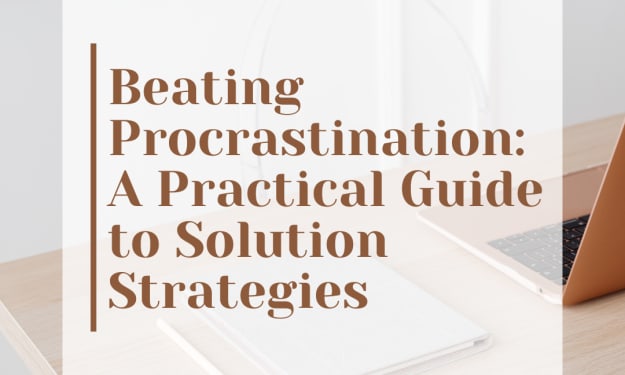Want Extra Energy and Self-Discipline After Work?
Do you also want to be more self-disciplined? How do you have extra energy to improve yourself after work? Indeed, many of us are filled with enthusiasm to improve ourselves after work, determined not to fall into a state of decay. However, upon arriving home, we are often greeted not by the earlier enthusiasm, but by a deep sense of fatigue. This situation has become a norm in today's society. In the accelerated pace of life, finding the time and energy to improve oneself has significantly diminished. Yet, people must constantly strive to cope with the pressures of life, leading to a paradox. Everyone wants to keep moving forward and achieve better accomplishments to make life easier. However, the daily grind leaves us with neither the energy nor the time to support such aspirations.

Some might ask, "We have one or two days off each week. Why not use those days to improve ourselves?" I used to think the same way, but after experiencing the real world, I realized that it's not that we can't do it, but that we don't really want to.
We tend to think that rare days off should be used for entertainment and relaxation. Why would we want to torture ourselves? Of course, some people do use their short breaks to improve themselves and might disagree with me. But in this society, everyone is different, and we can't generalize. This applies not just to you, but to me as well.
"After all this talk, aren't you going to get to the point?" some might be thinking. Don't worry, here it comes!
First, we need to distinguish between two types of fatigue: mental fatigue and physical fatigue. Understanding which type of fatigue you are experiencing will help you find the right solution. Only then can you effectively combat the feeling of exhaustion.
Mental Fatigue and Physical Fatigue
1. Physical Fatigue:
Usually caused by prolonged physical labor or lack of exercise. Physical fatigue manifests as bodily weakness, soreness, and slowed reactions.
Examples of Occupations:
- Chef
- Construction worker
- Mover
- Courier
This applies to individuals in occupations that require continuous physical exertion. These people experience physical exhaustion faster than mental exhaustion, so addressing this aspect is crucial.
2. Mental Fatigue:
Mainly caused by prolonged mental work, stress, and mental tension. Mental fatigue manifests as difficulty concentrating, memory decline, and emotional fluctuations.
Examples of Occupations:
- Office worker
- Teacher
- Programmer
- Doctor
- Manager
If you are experiencing mental fatigue, you must pay attention to your daily mental state. Check if fluctuating emotions are causing excessive activity that leads to fatigue, ultimately resulting in a loss of motivation and enthusiasm.
Work-Life Balance
Here, we need to pay attention to something called work-life balance. Only by achieving a balance between work and life can you generate more enthusiasm in your daily routine to improve yourself.
First, it's important to understand that work does not equal life, and life does not equal work. If they are mixed together, it is not considered balanced; it is a one-sided situation.
1. Setting Boundaries
- Separating Work and Life:
Focus on work during working hours and try to avoid dealing with work matters after hours. This can be achieved by turning off work email notifications and setting clear boundaries.
- Managing Time Effectively:
Use time management tools such as calendars and task lists to plan your daily work and personal activities. This ensures that work tasks are completed during working hours.
2. Rest and relaxation
- Sufficient Rest
Ensure you get enough sleep each day, with adults typically needing 7-9 hours of sleep per night. Quality sleep is fundamental for restoring energy.
- elaxation Activities:
After work, engage in relaxation activities such as walking, reading, or listening to music. These activities help alleviate stress and restore energy.
Diet and exercise
1. Healthy diet
- Balanced Diet:
Ensure your diet includes adequate protein, carbohydrates, fats, vitamins, and minerals. A balanced diet provides sufficient energy and maintains the normal functioning of your body.
- Moderate Caffeine Intake:
Caffeine can temporarily boost alertness and concentration, but excessive intake may lead to sleep problems and anxiety. Therefore, consume coffee or tea in moderation.
2. Regular movement
- Aerobic Exercise:
Activities such as running, swimming, and cycling help improve cardiovascular function, and increase stamina and endurance. Engaging in 150 minutes of moderate-intensity aerobic exercise per week can significantly enhance physical health.
- Strength Training:
Exercises like weightlifting and bodyweight training can strengthen muscles and improve bone health. Performing strength training 2-3 times per week helps enhance overall physical fitness.
- Relaxation Exercises:
Practices such as yoga and tai chi can help relax the body and mind, alleviating stress and tension.
Rationalize time for self-improvement
1. Setting clear goals
Setting Short-Term and Long-Term Goals:
Clearly define your specific goals and break them down into short-term and long-term objectives. Short-term goals should be specific and achievable, while long-term goals should be challenging and directional.
- Tracking Progress:
Keep a record of your daily progress and achievements using a journal or an app. This helps you adjust your plans and goals as needed.
2. Utilizing Spare Moments
- Making the Most of Commute Time:
You can read books, listen to podcasts, or learn new skills during your commute. Choose learning materials that are suitable for on-the-go, such as audiobooks and online courses.
- Lunch Breaks and Short Breaks:
Using lunch breaks and work intervals for brief study or reading sessions helps you make the most of every minute.
3. Creating a Study Plan
- Creating Daily and Weekly Study Plans
Based on your goals and schedule, create a detailed study plan that ensures specific tasks and times for learning each day and week.
- Flexibly Adjusting the Plan:
Flexibility to adjust the study plan according to the actual situation and progress to ensure the feasibility and effectiveness of the plan.
Methods for Self-Improvement
1. Reading and Learning
- Choose High-Quality Books and Resources:
Select books and articles that are relevant to your interests and career. Focus on learning new knowledge and skills by choosing classic works, industry reports, and reputable journals.
- Join Learning Communities
Participate in both online and offline learning communities. Engage with like-minded individuals to exchange knowledge and share insights, fostering mutual growth and progress.
2. Online Courses and Educational Platforms
- Choosing the Right Online Courses:
Select online courses that align with your interests and career needs. Platforms like Coursera, edX, and Udemy offer a wide variety of courses to choose from.
- Creating a Study Plan and Goals:
Develop a detailed study plan and set clear goals based on the course content and your schedule. This ensures you stay on track and complete the courses on time.
3. Skill Training and Workshops
- Participate in Skill Training and Workshops:
Attend skill training sessions and workshops related to your career and interests to learn new skills and enhance your professional abilities.
- Utilize Company Resources:
If your company offers training and learning opportunities, actively participate and take advantage of these resources to improve yourself.
4. Practice and Application
- Apply Learning Outcomes to Work and Life:
Use the new knowledge and skills you have acquired in your actual work and daily life. Practicing what you have learned helps to solidify the content.
- Seek Practical Opportunities:
Actively look for and participate in projects, volunteer activities, and internships. Engaging in hands-on experiences enhances your abilities through real-world application.
Staying Motivated and Persistent
1. Establish a Reward System
- Small Rewards:
Set small rewards for yourself after completing a phase goal. For example, watch a movie or enjoy a special meal to motivate yourself to keep moving forward.
- Celebrate Achievements:
Whenever you reach an important goal or make significant progress, celebrate your achievement. This boosts your confidence and motivation to continue striving for success.
2. Seek Support and Accountability
Find Study Partners:
Learn and improve alongside friends or colleagues, holding each other accountable and providing mutual encouragement for collective progress.
- Join Support Groups:
Participate in online or offline support groups where you can share experiences and insights with others who have similar goals, gaining support and encouragement.
3. Self-Reflection and Adjustment
- Regular Reflection:
Regularly reflect on your learning and self-improvement process. Summarize your experiences and lessons learned and identify areas for improvement.
- Flexible Plan Adjustment:
Adjust your plans and goals flexibly based on actual circumstances and progress. Ensure that your plan remains feasible and effective.
Final Thoughts
Staying energized and improving yourself after work requires effective energy management, a balance between work and life, healthy diet and exercise habits, and efficient time management and learning strategies.
By setting clear goals, creating detailed plans, making the most of spare moments, and maintaining motivation and persistence, you can effectively enhance yourself outside of work and achieve both personal and professional growth.
I hope the strategies and methods provided in this article are helpful to you, enabling you to pursue self-improvement with vitality amidst a busy work life and move towards a brighter future.
About the Creator
lifeisconfusing_butstillalive
I'll be sharing my life experiences, personal profile, solutions to problems and highlights of books I've already read.






Comments
There are no comments for this story
Be the first to respond and start the conversation.